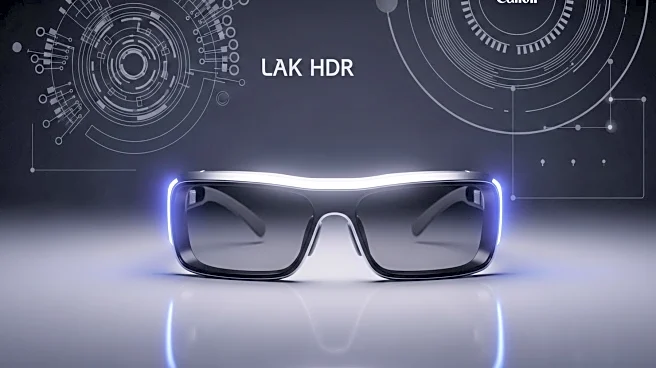What is the story about?
What's Happening?
Amazon is reportedly developing augmented reality (AR) glasses to rival Meta, according to reports from The Information and Reuters. This development signals a competitive race among major tech companies in the AR space, with Amazon aiming to integrate shopping data directly into wearables. The potential for product overlays in physical stores could redefine consumer shopping experiences. Meanwhile, Snap has enhanced its Spectacles with GPS and hand-tracking capabilities, expanding real-world AR applications. These advancements are part of a broader trend in 2025, where major players like Meta and Snap are making significant strides in AR technology, including Meta's launch of Ray-Ban smart glasses with built-in displays.
Why It's Important?
The development of AR glasses by Amazon and other tech giants marks a significant shift in the wearable technology market. By integrating AR into everyday consumer experiences, companies are poised to change how users interact with digital content in physical spaces. This could lead to increased consumer engagement and new business opportunities, particularly in retail environments. The competition among companies like Amazon, Meta, and Snap is likely to drive innovation, resulting in more advanced and affordable AR products. As AR technology becomes more mainstream, it could impact various sectors, including retail, entertainment, and education, by offering immersive and interactive experiences.
What's Next?
As Amazon continues to develop its AR glasses, the market can expect further announcements and product launches from competing companies. The rivalry may lead to rapid advancements in AR technology, with companies focusing on improving battery life, display quality, and user interface. Consumers can anticipate more practical and user-friendly AR devices, potentially leading to widespread adoption. Additionally, developers will likely explore new applications for AR technology, enhancing its utility across different industries. The competitive landscape may also prompt regulatory discussions around privacy and data security, as AR devices collect and utilize personal information.
Beyond the Headlines
The push for AR technology in wearables raises ethical and privacy concerns, particularly regarding data collection and user consent. As AR devices become more integrated into daily life, companies must address these issues to maintain consumer trust. Furthermore, the cultural impact of AR technology could lead to shifts in how people interact with their environment, potentially altering social norms and behaviors. Long-term, the widespread adoption of AR could influence urban planning and infrastructure, as cities adapt to accommodate new technological needs.
















